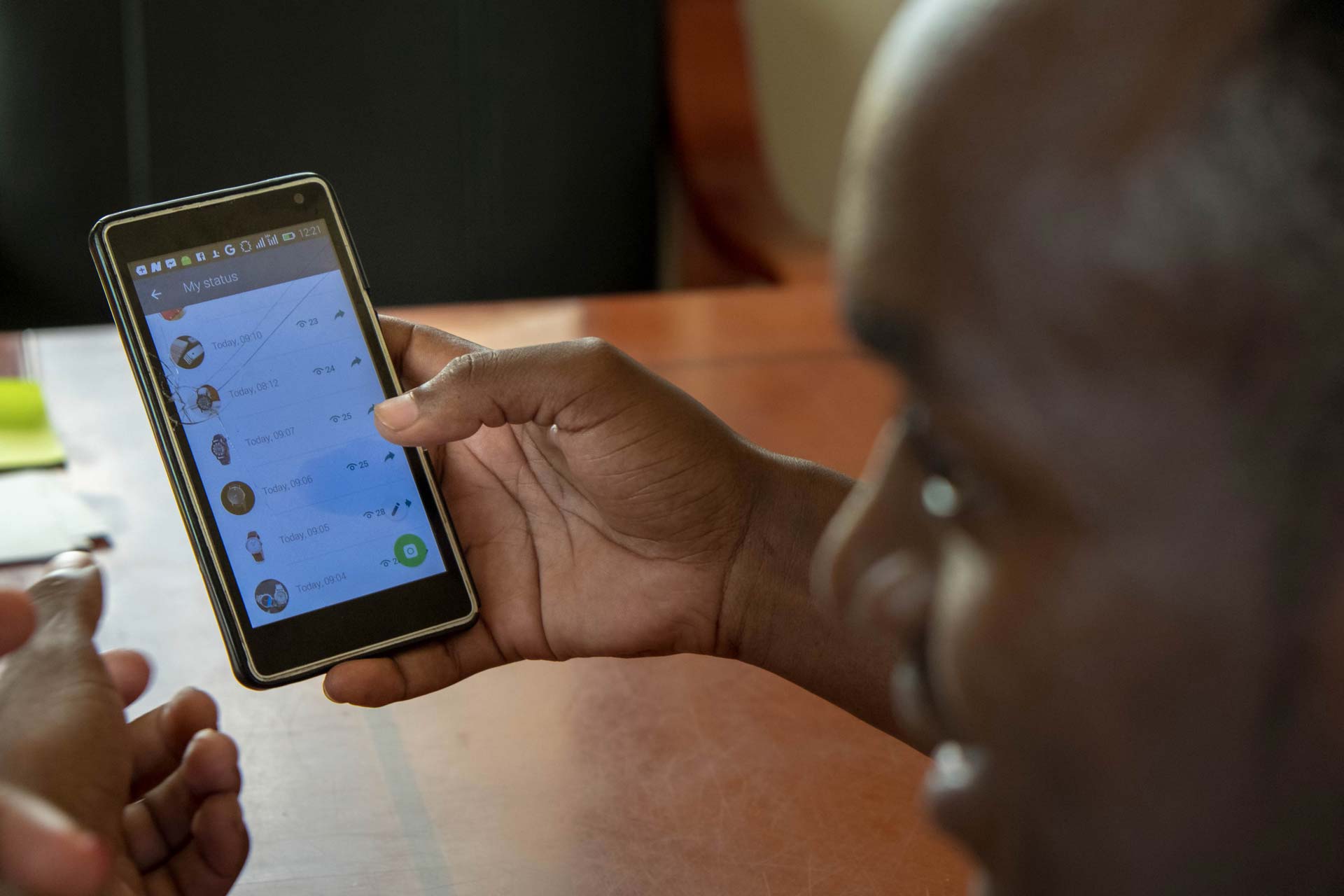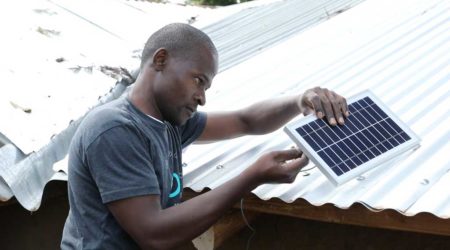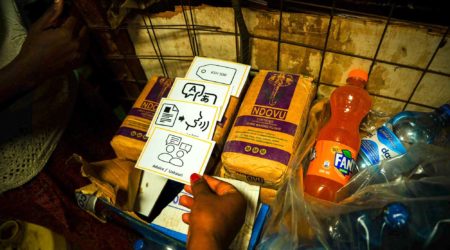What if We Offered Business Support to Small Merchants Over WhatsApp?
Micro-consulting to Provide MSMEs with Practical Advice

Micro and small retailers (referred to as small merchants here) play a vital role in the lives of low-income communities, especially in emerging markets. In Kenya, for example, an estimated 95 percent of the population visit these small retail shops, and 70 to 80 percent of fast moving consumer goods flow through them. But where do these small merchants turn when they need business support?
At BFA, we’ve been exploring this question through our program FIBR by researching small merchants across Nairobi. We’ve learned from in-depth conversations, for example, that many owners start a business either because of advice from family or friends or because they believe that running a business will generate a steady income. Setting up a small shop generally requires minimal capital input, which is a major motivating factor, and small merchants tend to borrow the initial amount predominantly from family and friends. Support outside of personal networks at this stage is quite limited primarily because these merchants don’t know where else to go.
A One-Man Show
“I just do my own business. I don’t share with others. I can ask them anything, but I’m not interested. I ask someone; she may not feel good.” — Shopkeeper, Nairobi, Kenya
Managing a shop is also a lonely affair. Small merchants tend to their shops on their own and lean on family and friends to sit in at the shop in their absence. They prefer not to ask neighboring merchants for information or advice related to business decision-making. Most interactions among neighbors are limited to recent price fluctuations across various products or other general market trends.
“If my shop isn’t doing good, I look to other shop owners to see if it’s only me, or whether it’s the area. I ask my friends for advice otherwise.”
Lack of market information for small merchants hinders learning and professional development and ultimately impedes their decision-making capabilities. With limited support, business can be difficult to manage, and if not done right, the small merchant may not make enough to sustain the business. Apart from advice from family and friends, there are few safe and trustworthy avenues small merchants can turn to, including a few limited business support training programs like TechnoServe’s Smart Duka Program.
Micro-consulting: A New Support Structure
At FIBR, we’re interested in the promise of micro-consulting, a new way of offering practical advice and know-how to address the specific challenges and aspirations small merchants face through a digital messaging channel. These micro-consulting services can be used by small merchants when they need in small, discrete blocks of time. Through digital delivery, the service can be availed at lower cost and over a larger scale than traditional consulting services. Preliminary research showed that most small merchants have a phone that can support digital messaging, including WhatsApp, and that they are comfortable enough to use it.
For our initial deep dive into micro-consulting, we’ve focused on one particular type of small merchant, mobile money agents that also run a small shop. While these entrepreneurs receive focused training and support for the mobile money services they offer, the content is mostly limited to instructions on how to deal with clients, how to make transactions and troubleshoot a problem. We wanted to go beyond the basic support structure and assist the business as a whole, while learning from it.
Our Digital Experiment
We ran a six-week micro-consulting pilot program with a group of 20 small merchants in peri-urban areas in Nairobi, who were invited to a WhatsApp group moderated by a mobile money business expert. Merchants could ask any question on the group related to their business and share information that they found useful. Each week covered a theme for discussion, including business support and growth, customer management, technology and innovation, and financial and risk management, and other topics of interest to the merchants. Through the six weeks, the moderator posted tips and tricks for improving the business, responded to merchants’ questions and concerns, and created a space for the agents to interact with each other to gain deeper insights into the workings of their business.
We chose WhatsApp as our digital channel because of its predominance amongst small merchants and because merchants could access it when it was most convenient for them. From a data analysis standpoint, it was easier to know when messages were delivered and read, to understand what times worked best for merchants in terms of internet bundle usage and free time. Using a digital channel also meant that we could reach a wider audience of merchants rather than being focused in one particular neighborhood in Kenya.
We also held one-on-one phone calls (one at the beginning of the pilot, one mid-way, and one at the end) between the moderator and the merchants to help build rapport, encourage participation from the more shyer merchants, and get their feedback about the program.
Keep Up the Pilot
Results were quite promising — there was zero attrition in the group. The agents enjoyed being part of the group and asked if the program could continue beyond the six-week period. We are curious to explore how active and passive learners would leverage such a service and how the service could cater to both mobile money and other types of businesses. As business training grows for bank and mobile money provider agent networks, so too does the potential to use these channels to support other types of business owners. With that in mind, could micro-consulting be the way forward for value-added services for small merchants in the future? We’ll discuss our findings in greater detail in an upcoming post.
Learn more about our ongoing MSME research by signing up for our “Hitting the Sweet Spot: What do small merchants need to survive and grow their business?” webinar and follow us on Twitter @FIBR_BFA.



